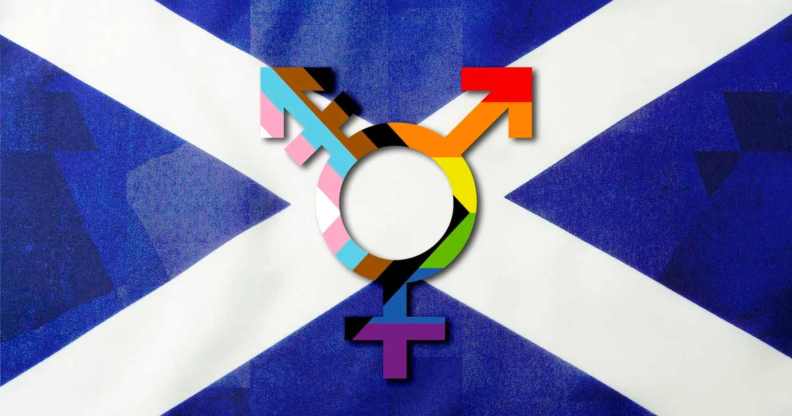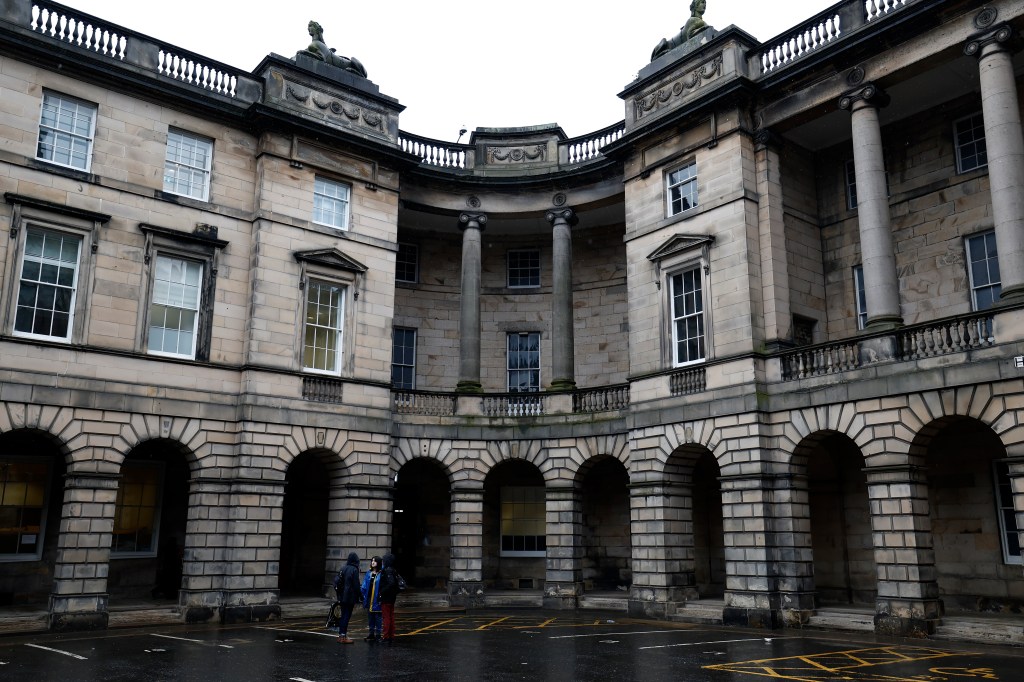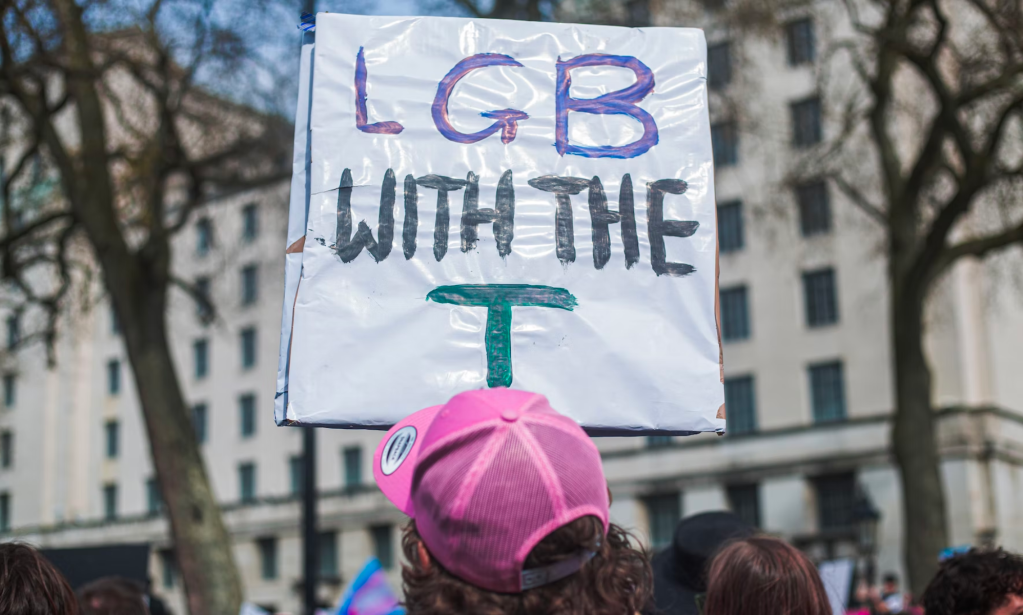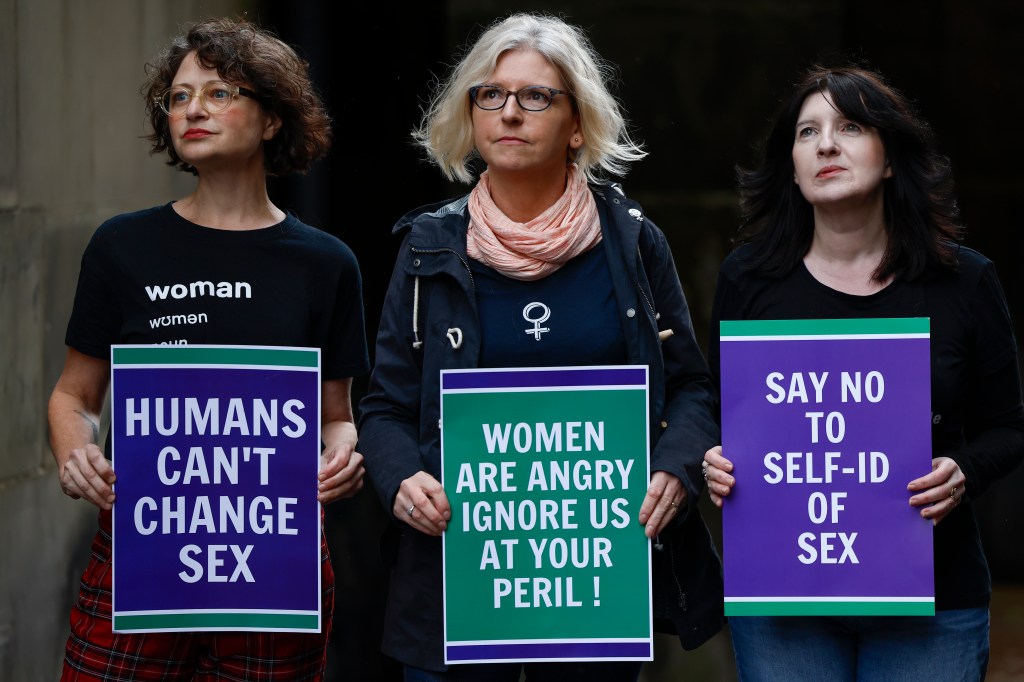Gender reform law: Scottish and UK governments battle in court over Section 35 block

Holyrood and Westminster are in court over Scotland’s gender law reform bill
The Scottish government’s legal challenge against Westminster blocking its gender reform bill begins in court on Tuesday (19 September).
The two governments will go head-to-head over the much-debated legislation, which puts trans rights at the forefront of the independence battlefield and makes the hearing as much a constitutional showdown as a dispute over legislation.
The hearing is will take place at the Court of Session in Edinburgh from Tuesday until Thursday (21 September), overseen by judge Lady Haldane, and will see Holyrood’s SNP government present its argument first, followed by Westminster’s Tories.
Lady Haldane previously ruled that the definition of sex was “not limited to biological or birth sex”.
In her December 2022 ruling, which became known as the ‘the Haldane decision‘, she stated the Equality Act 2010 protects a person’s rights based on their sex but the definition of “sex” is not entirely restricted to biological birth sex.
It ruled that the ability of Gender Recognition Certificates (GRCs) to change someone’s legal sex “does not offend against, or give rise to any conflict with, legislation where it is clear that ‘sex’ means biological sex”.

What is Scotland’s gender law reform bill?
Scotland’s landmark Gender Recognition Reform (Scotland) Bill was passed in December 2022 by 86 votes to 39, following years of consultation by the Scottish government.
The bill would amend the Gender Recognition Act 2004 and make it easier for trans people to get a Gender Recognition Certificate (GRC), as well as open up the process to 16 and 17 year olds for the first time.
The law would remove the highly medicalised process trans people have to go through, by taking away the requirement to be diagnosed with gender dysphoria and implement a system of self-ID.
As the law currently stands, in the UK trans people must apply to the gender recognition panel and present reports as well as a diagnosis of gender dysphoria – a process that can take years given the immense wait times at NHS gender clinics.
Thus, Scotland’s landmark bill was hailed as a “historic day for equality in Scotland” and praised by trans people, allies and activist groups.
“The law that has passed today will mean that at important moments in their lives, like when starting a job or giving notice to be married, trans men and women will be able to show a birth certificate that reflects who they are,” Vic Valentine, manager of Scottish Trans, said at the time.
“We all want to be able to live true to ourselves, and by voting for these simple but important changes to the existing process for trans people to be legally recognised, MSPs will improve trans men and women’s lives, by allowing them to live with the dignity and recognition that everyone deserves.”
Why did Westminster block the law?
On 16 January, the UK government announced it would block the bill from passing using Section 35 of the Scotland Act 1998, an unprecedented political move in the history of devolution.
The act gives Westminster the power to intervene on bills “which the secretary of state has reasonable grounds to believe would be incompatible with any international obligations or the interest of defence or national security”.
At the time, Nicola Sturgeon blasted the UK government’s actions as a “full-frontal attack on democracy” and said it was an “attack on our democratically elected Scottish parliament and its ability to make its own decision on devolved matters”
“If this Westminster veto succeeds, it will be the first of many,” the former leader wrote on social media.
In an address to parliament the following day, Tory Scottish secretary Alister Jack cited “single-sex” spaces and “equal pay” protections as reasons for halting the law from gaining royal assent.
At the time, he told the House of Commons the decision had not been taken “lightly” by the government but the Tories believed the bill would have a “serious adverse impact among other things on the operation of the Equality Act 2010”.
“Those adverse effects include impacts on the operation of single-sex clubs, associations, and schools and protections such as equal pay.”
“The bill also risks creating significant complications from having two different gender recognition regimes in the UK, and allowing more fraudulent or bad faith applications,” Jack continued.

However, a number of legal experts have stated the law would not have any negative interactions with the Equality Act 2010.
“The Gender Recognition Reform Bill was passed by a decisive majority of MSPs, after having received more extensive scrutiny than any other legislation in the Scottish Parliament’s history,” a spokesperson for Stonewall said.
“It does not interact with Equality Act – clarified by successful amendments from a Scottish Labour MSP; and it contains more safeguards than the UK Gender Recognition Act – thanks to successful amendments by a Scottish Conservative MSP.”
When the bill was blocked, Rishi Sunak and Keir Starmer both came out and expressed “concerns” about the law.
What was the reaction?
Trans people reacted with dismay and horror at the news the legislation had been halted by Westminster, with many left fearful that the move could be used by the government to prevent LGBTQ+ laws passing in other devolved nations or push anti-LGBTQ+ narratives.
“It’s about removing the difficult parts of that process. It’s not about how we change our passports and driving licenses,” campaigner Hannah Graf said on Lorraine.
“There’s a lot of fear-mongering around. If we step back we can see there is nothing to worry about. For some reason, trans conversations are happening without trans people involved. Transgender rights across the board, in the UK and abroad, are under attack.”
The move to block the legislation was also seen by many activists and politicians as an opportunistic one, which sought to capitalise on anti-trans rhetoric for the goal of pushing further anti-trans narratives and undermining Scotland’s devolved powers.
“If they actually go through with their threat to either block the bill from receiving royal assent or block the implementation of it… I think that signals that this becomes about something much more than the issue of self-declaration – this becomes a constitutional crisis, I think,” Maggie Chapman, equalities spokesperson for the Scottish Greens, told PinkNews back in January.
“If a government is prepared to wreck devolution, to ride roughshod over the rights of trans people, then what else are they willing to do? That’s actually quite scary, thinking about it in a bigger context.”

Hannah Blythyn, member of the Senedd for Delyn, called the move an “outrageous” and “disgraceful” attack both on democracy and LGBTQ+ rights.
LGBTQ+ rights campaigner Peter Tatchell slammed Westminster for “falsely claiming that the Scottish gender recognition bill violates the UK’s Equality Act”.
“It doesn’t,” Tatchell said. “This is just a crude excuse for its shameful attack on trans rights and Scottish democracy.”
Anti-trans campaigners, however, welcomed the decision to block the gender law reforms due to their view that trans rights are in direct opposition with women’s rights.
In The National, SNP MP Joanna Cherry – who opposes the GRR and has spoken out against trans rights – wrote in a column at the time: “The women, the old ladies, people with disabilities and those who are same-sex attracted who have valid concerns about the impacts of this bill are as deserving of having their voices heard as the trans people whom it may benefit.
“They don’t deserve to have their voices drowned out by this issue being turned into a constitutional football.”
She went on to write that she is not against the simplification of the process of gender recognition for trans people but said “simplification should not mean eliminating safeguards”.
Who brought legal action?
Following his election as SNP leader and Scotland’s first minister, Humza Yousaf vowed to challenge the block, which he described as a “power grab”.
Answering questions after his win, Humza Yousaf said: “They do not have any right to use that excessive justified power given that the majority of Hollywood, of course, backed the GRR bill.
“My first principle, my starting principle, is to challenge that Section 35 order,” he said.
How did this story make you feel?

